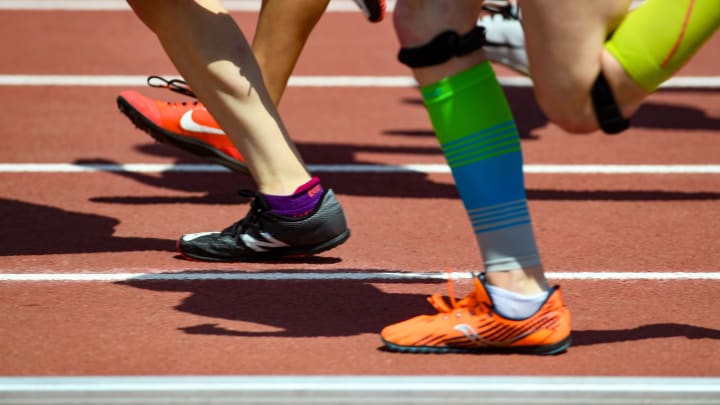World Athletics Bans Transgender Women From Ranking Competitions

World Athletics has banned transgender women from competing in female world ranking competitions beginning March 31, the sport’s governing body announced Thursday.
Organization president Sebastian Coe said that the ban will prevent any transgender woman athlete that went through puberty before transitioning from competing in the elite female competitions. He added in a press conference Thursday that the decision was “guided by the overarching principle which is to protect the female category,” according to BBC Sport.
“Decisions are always difficult when they involve conflicting needs and rights between different groups, but we continue to take the view that we must maintain fairness for female athletes above all other considerations,” Coe said in a statement. “We will be guided in this by the science around physical performance and male advantage which will inevitably develop over the coming years. As more evidence becomes available, we will review our position, but we believe the integrity of the female category in athletics is paramount.”
Coe also announced the creation of a “working group” for the next 12 months to “further consider the issue of transgender inclusion.”
Thursday’s decision runs counter to the previous stance of World Athletics, which said as recently as January that its “preferred option” was to allow transgender women to continue competing in the female category but to use stricter limits on testosterone levels as a basis to compete. However, the governing body claimed in its statement Thursday that there was “little support” for such a decision among stakeholders, which includes member federations as well as the International Olympic Committee.
In addition to the competition ban on transgender women, the World Athletics council voted to implement tighter restrictions on athletes with intersex variations. Such athletes will now be required to lower their testosterone levels to 2.5 nanomoles per liter, down from five, and must maintain that level for two years to compete in the female category of any track and field event.
Previously, such athletes were required to limit their testosterone levels only in events that ranged between 400 meters and a mile.
The latter decision could affect athletes such as two-time Olympic 800-meter gold medalist Caster Semenya and Christine Mboma, who won the silver medal in the 200 meters at the Tokyo Olympics.
“We are beyond devastated to see World Athletics succumbing to political pressure instead of core principles of inclusion, fairness and non-discrimination for transgender athletes and athletes with intersex variations,” Hudson Taylor, founder and executive director of Athlete Ally, said in a statement. “The guidelines announced today go against inclusive guidelines from the International Olympic Committee as well as extensive research showing that transgender women do not have an inherent advantage in sport.
“We will continue to push for World Athletics to look at the science, to center inclusion, and to speak directly with athletes affected by these criteria in order to develop a policy that allows all athletes access to the sport they love.”
